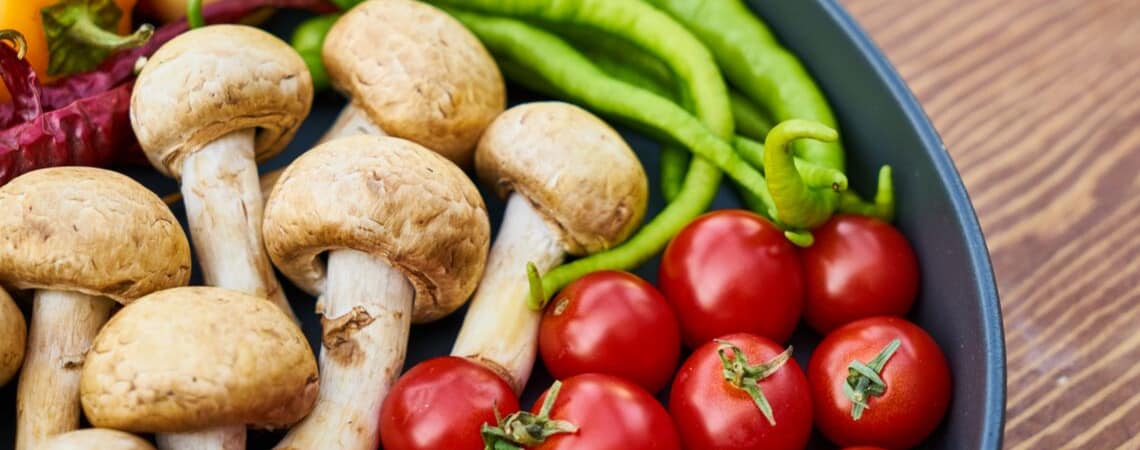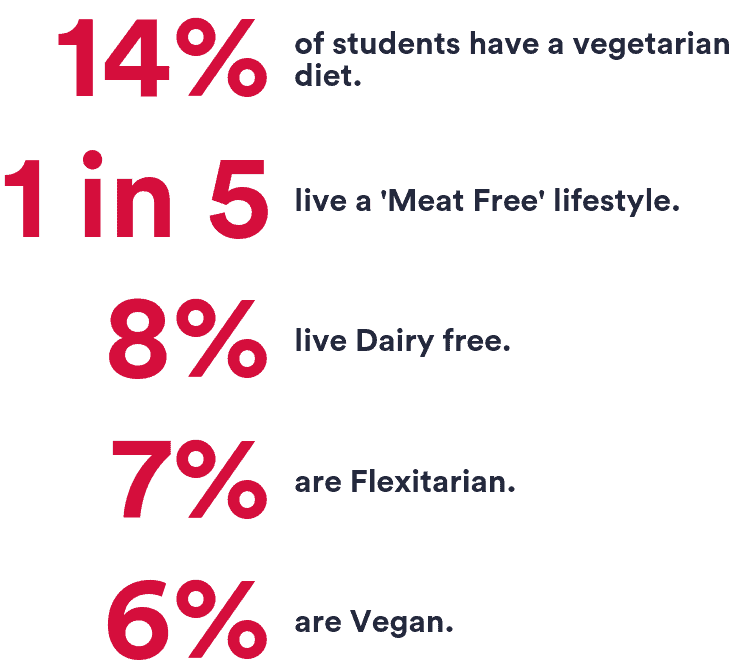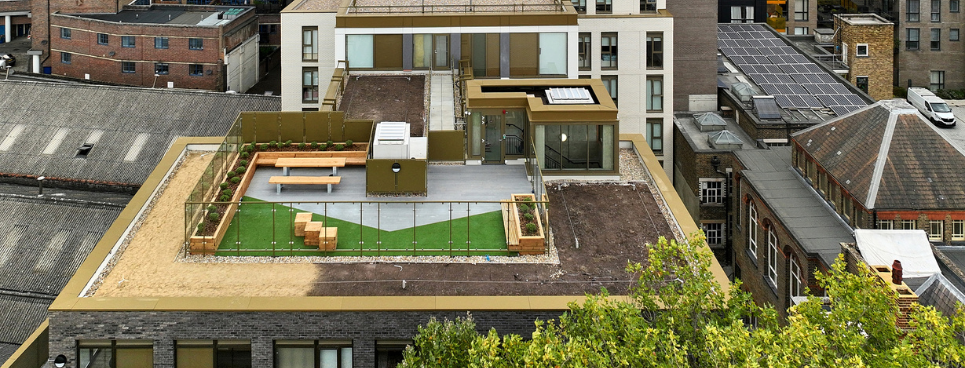News flash! Host Shortlisted for Three Prestigious GSL (Global Student Living) Awards 2025 and Retains Platinum Operator Certification
ROOMS SELLING FAST Find your new home for September

When it comes to what we eat, students are changing the traditional approach of a UK balanced diet. More than ever students are considering carefully what they put in their bodies and are making choices based not just on taste but the health benefits and also ethics. A recently released survey on student habits found that:

Whether it’s because they have gone full-on veggie or just making the effort to do meat-free Mondays. Students everywhere are beginning to embrace a more plant-based diet.
Put simply, a vegetarian diet means you can eat anything apart from meat or fish. Whereas a vegan diet contains only plants and foods made from plants, meaning that any food that comes from animals, including eggs and dairy products, are avoided.
In an article for the Evening Standard, nutritionist and health specialist Geeta Sidhu-Robb wrote about the health benefits of going veggie including:
If the advice on a healthy diet is followed, a vegetarian diet should be naturally low in saturated fats and cholesterol, which can reduce the risk of heart disease. A major study published in the British Medical Journal in September 2019 found that although people who eat vegan and vegetarian diets have a lower risk of heart disease they could be at a higher risk of a stroke. The NHS wrote that the heart disease results vegetarian-based be partly down to vegetarians having lower body mass index (BMI), lower blood pressure and lower cholesterol levels, adding that “There’s no need to be alarmed by the findings if you follow a healthy diet of any type. And any increase in the risk of stroke for vegetarians is ‘outweighed’ by a potentially greater decrease in heart disease risk.”
Vegetarians tend to weigh less than a meat-eater as a result of the diet based on lower calorie intake.
As a result of eating less processed food, vegetarians are less likely to suffer from food-born illnesses, bacteria, parasites and chemical toxins that can be found more commonly in commercial meat, poultry, and seafood.
Vegetarians tend to stay fuller for longer, as the diet has a lot more fibre content than the traditional UK “meat and two veg” diet.
While, a Harvard Medical School blog post found that a predominantly plant-based diet can reduce the risk for type 2 diabetes by half.
Researches have found that a vegetarian diet, can reduce depression. In a study it was found that those who eat a more plant-based diet scored lower on depression tests and mood profiles. More so than those who ate a more meat and fish-based diet. It’s believed that the freshness of most vegetarian foods has a link to cleansing our minds and keeping positive.
The university of Oxford, Nuffield department of clinical medicine found a strong relation between the risk of developing cataracts and our diet, with vegetarians and vegans being at the lowest risk.
According to the NHS Live Well website to achieve a healthy balanced diet as a vegetarian, people need to:
Like everyone. Vegetarians should make sure they try and eat at least 5 80g portions of fresh, frozen, canned, dried or juiced fruit and veg a day.
 Base meals on starchy carbohydrates.
Base meals on starchy carbohydrates. Such as potatoes, bread, cereals, rice and pasta. Which should ideally make up about a third of the food you eat. Starchy foods are a good source of energy and the main source of a range of nutrients. They contain fibre, calcium, iron and B vitamins as well as starch.
Cheese and yoghurt are a great source of protein, calcium and vitamins A and B12. Choose lower-fat milk and dairy foods, and wherever possible go for the lower sugar options.
Pulses such as beans, peas, lentils, etc. Are all low-fat source of protein, fibre, vitamins and minerals. And they a;; come with the added benefit of counting as one of your five a day. Pulses are an important source of protein for people who don’t eat meat, fish or dairy products. Nuts and seeds are also a good source of protein.
You could also consider other dairy and meat alternatives such as tofu, mycoprotein. Such as Quorn. And textured vegetable protein (soy). You should eat a variety of different sources of protein to get the right mixture of amino acids. Which as we wrote earlier, are used to build and repair the body’s cells.
Including vegetable, rapeseed, sunflower or olive oil and eat them in small amounts.
Cut down your intake on foods high in fat. Salt or sugar like fast food (such as cream, chocolate, crisps, biscuits, pastries, ice cream, cakes and puddings).
Vegetarians are more likely to have lower iron stores than meat-eaters. Good sources of iron for vegetarians include eggs, pulses, dried fruit, dark green vegetables, (watercress, broccoli, etc.), and wholemeal bread.
Then why not check out the Veg Pledge for Cancer Research UK in November. Challenge yourself to go vegetarian for a month. And in doing so get sponsored or fundraise for your challenge and raise money for life-saving cancer research.
To become more ‘environmentally friendly’, Host is launching the #HostEnvironmentalPledge campaign to encourage responsible behaviour and drive sustainability across our sites throughout the UK and Ireland.
It’s a simple campaign! For every percent we reduce our overall utilities (electric, water and gas) consumption by we donate to one of our nominated charities.
Show me all newsAs the academic year winds down, many students start packing their bags and heading home for a much-needed break. But what if you stayed in your university town or city instead? Picking up a summer job where you study can be a game-changer - not just for your bank balance, but also for your personal growth and career prospects. Here's why staying local this summer might be one of your smartest moves yet, along with practical tips to make the most of it.
Choosing where to live during your studies in London is about more than just finding a place to sleep - it’s about finding a supportive, safe, and enriching environment that enhances your university experience. Here's why thousands of students choose Host as their student accommodation provider in London every year.



